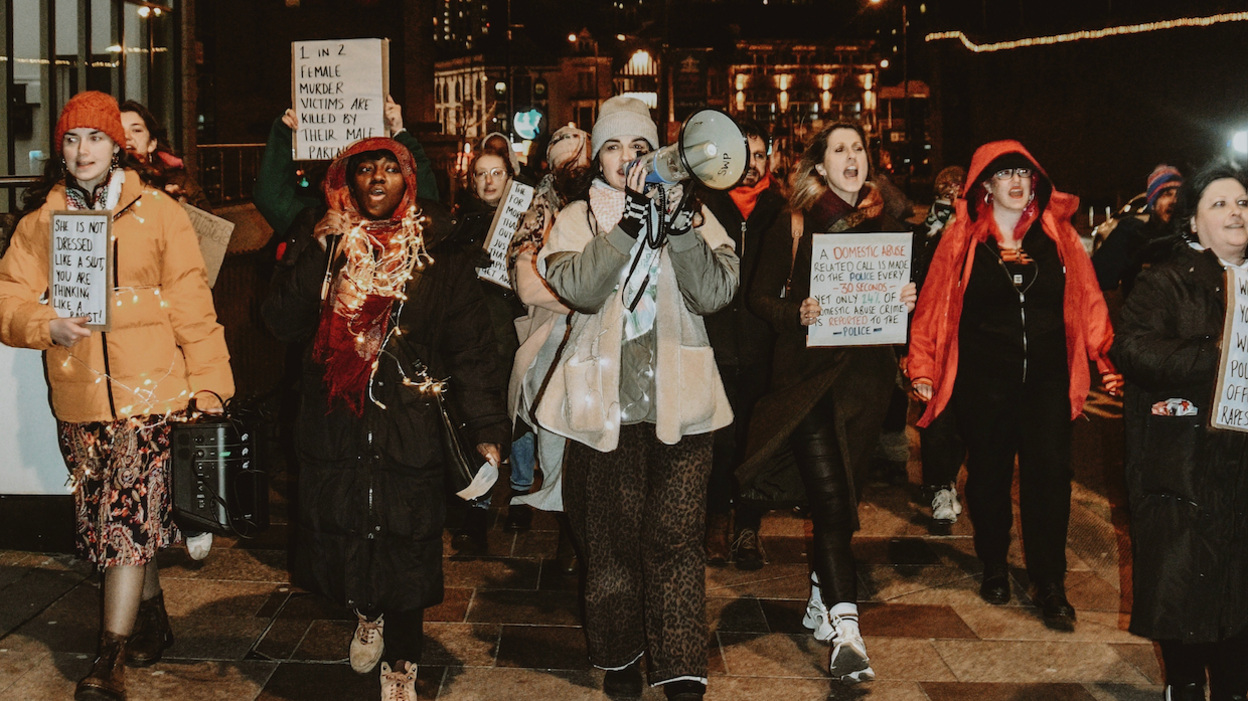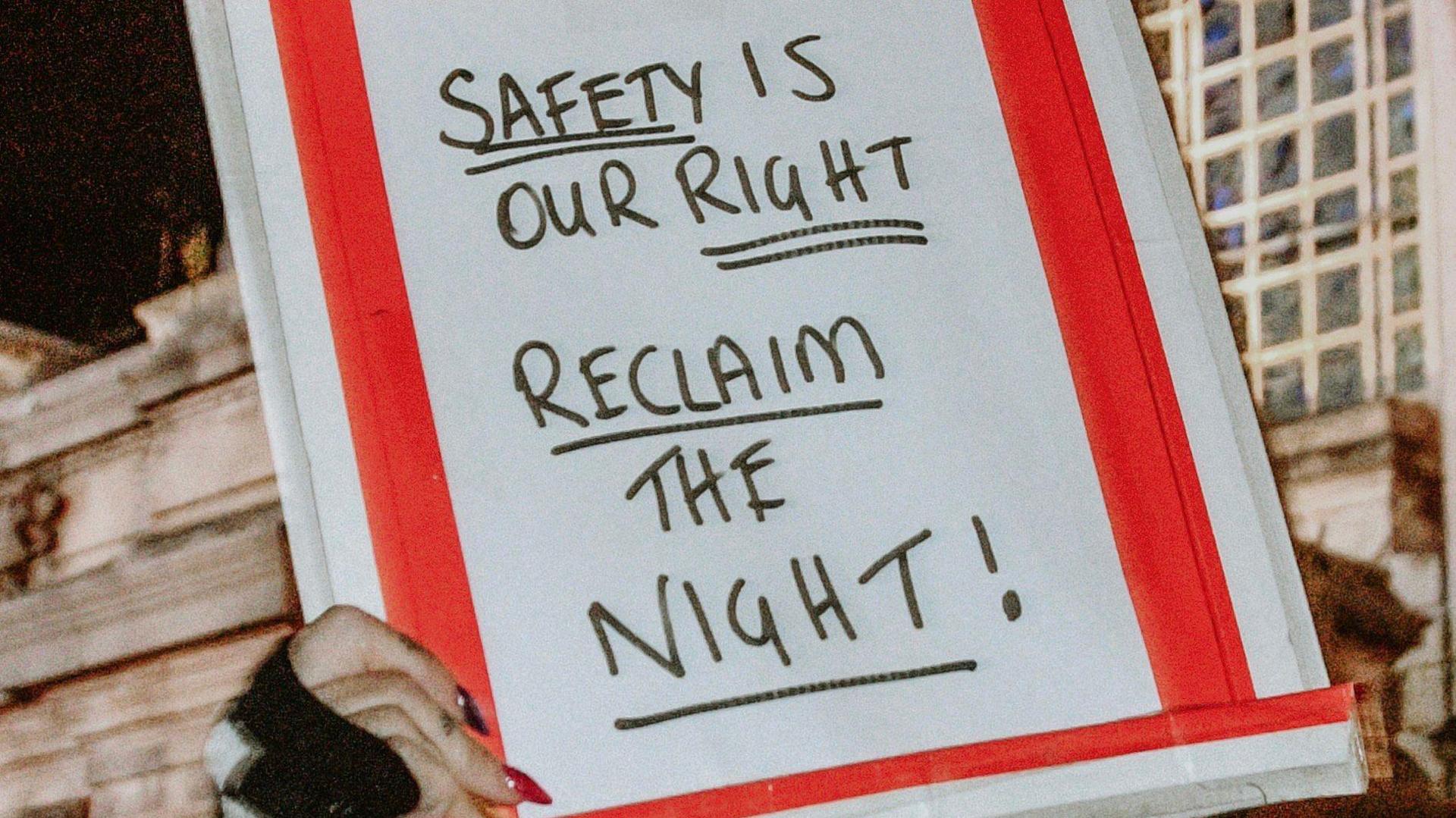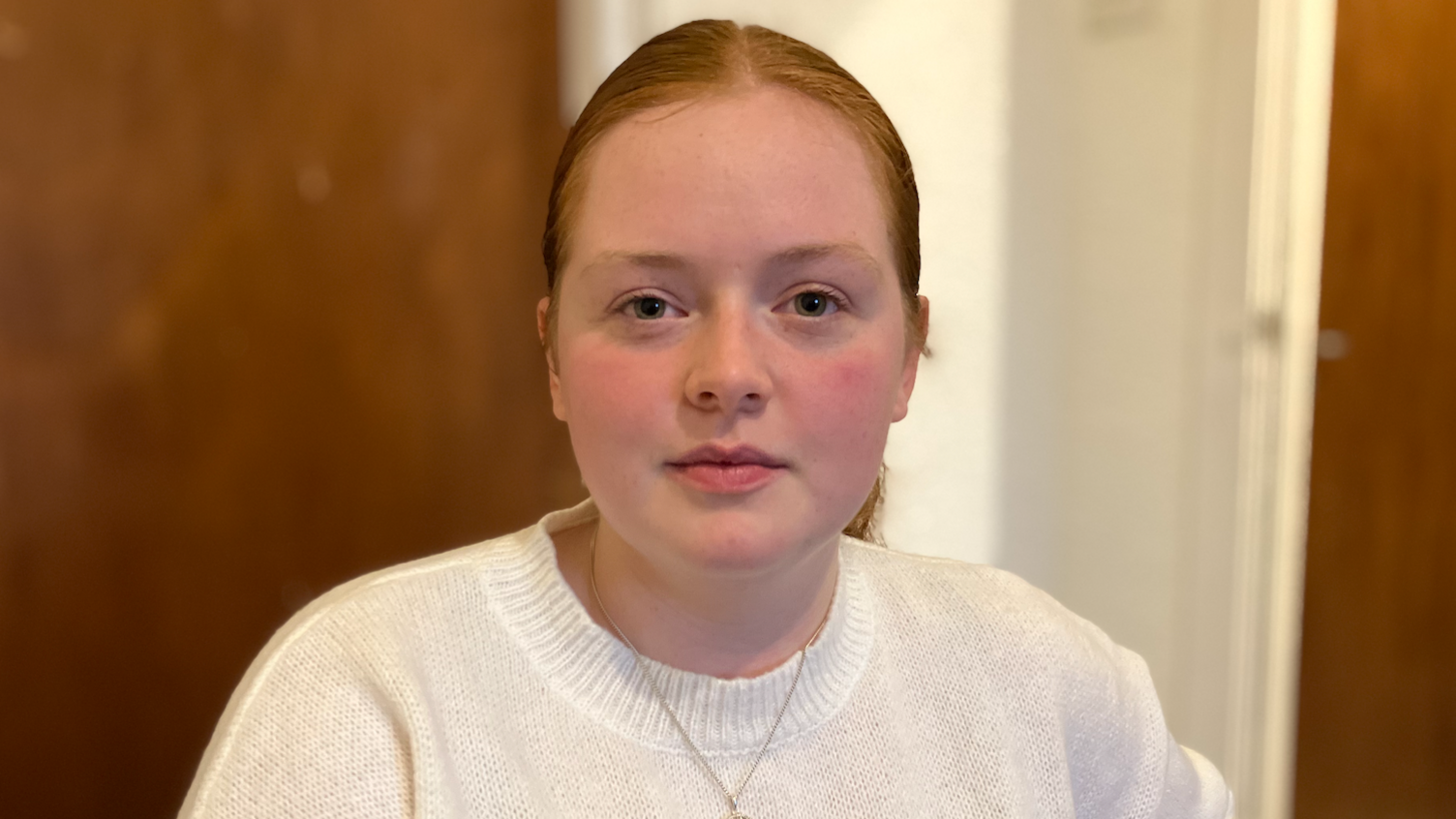Man posed as woman's boyfriend after she was spiked

Campaigners have been marching through Cardiff city centre calling for an end to all violence against women and girls
- Published
A student who believes she was spiked on a night out later discovered a man she did not know had been waiting for her outside claiming to be her boyfriend.
Anna, not her real name, woke up shaking and vomiting after a night out in Cardiff in 2023, and only learned this had happened after calling an unknown number she received a text from.
Anna is one of several women who told BBC Wales they've felt unsafe on nights out, citing incidents of spiking, catcalling, unwanted touching and stalking.
South Wales Police said tackling violence against women and girls was a priority and the Welsh government said it was committed to ending violence.
Catcalls and being followed: Why I’m scared to run
- Published16 November 2024
The women killed by men in Wales since 2020
- Published7 December 2024
Nightmares of mum glassed in face by stranger
- Published23 April 2024
Anna had no memory of the night out, but rang the unknown number.
She said: "It was a woman, a little older than me, telling me she'd found me in the toilets.
"I was really unwell.
"When she helped me outside, she said there was a man waiting for me, saying I was his girlfriend, but I didn't know him."
Anna contacted South Wales Police with a complaint about the alleged spiking, and she said the force opened a stalking investigation, but no arrest was made.
"Police thought, from the nightclub's CCTV, that [the man] had shown a clear photo of me on his phone," Anna added.
"They had to consider that this could have been someone who had targeted me for weeks.
"There are so many things that could have happened if that girl didn't help me."
Another woman said she was haunted by her experience of being spiked by a needle injection in Swansea.
"A man approached me to talk to me," Sophie, which is not her real name, said.
"He put his hand on my arm, to prompt me to talk to him, or dance with him, and that's when I believe it happened.
"About 03:30 in the morning, I woke up and that's when I realised something was wrong.
"I was numb from the waist down. I was panicking, it was like a nightmare."
Sophie noticed a bruise on her arm and medical tests showed traces of ketamine and GHB (gamma hydroxybutyrate) - neither of which she had knowingly taken - in her blood.

Màneha Sethi, 26, said she will move out of Cardiff due to safety fears
Màneha Sethi, 26, said she had decided to leave Cardiff because she felt uncomfortable walking alone.
"I tend to just make a phone call, make it look like I'm not alone," she said.
"Take out my keys, or something that will make a noise in your hand which we've all instinctively learned, which is really, really sad."
Another student, Bethany Emerson, 21, who lives in Swansea, said she always records herself walking on her own in case anything happens to her, despite a city centre police presence making her feel safe.
While 19-year-old Hannah Gatrell said: "You walk down the street, maybe Wind Street, you get comments, you get catcalled, you get whistled at.
"In clubs, I know people who've been touched inappropriately."

Multiple Reclaim the Night marches have been held by campaigners in Cardiff over the past year
Street pastors volunteer on Friday and Saturday nights in the city, working with police to protect vulnerable people.
"Sometimes if people are alone, there might be people trying to move in on them," said volunteer, Christina.
"We would generally look out for that and get between them. What we try to do is early intervention, to stop anything escalating."
During the past few months, campaigners have been marching through the streets of Cardiff with placards and speakers, calling for an end to all violence against women.
Rowan Dominique, 20, of campaign group Time To Act said marches in the centre of Cardiff were needed to call out bad behaviour.
"We always teach about the pyramid of sexual violence," she added.
"We want to be out there. We want people to hear us. So many survivors are so ashamed."

Bethany Emerson, 21, films her walks alone at night to stay safe
Prof Emily Underwood-Lee, co-chairwoman of Violence Against Women, Domestic Abuse and Sexual Violence Research Network for Wales, said smaller incidents could lead to "larger actions of misogyny and violence" in future.
"I'm not saying that everybody that catcalls will go on to commit some sort of homicide or serious sexual assault," she said.
"But by enabling these things to go unchallenged, we allow a greater culture that can lead to some of the really horrific things that we hear."
South Wales Police Assistant Chief Constable Joanna Maal said tackling violence and abuse against women and girls was "a long-standing priority" for the force.
"We target resources towards clear routes to safety for victims... addressing the harmful attitudes and behaviours that result in violence and abuse," she said.
The Welsh government said: "Violence against women and girls is unacceptable and far too common at present."
It added it was committing to ending violence and "creating a society where everyone can live without fear".
It also said it welcomed the UK government's commitment to "creating a single offence for administering harmful substances, which will help tackle crimes like spiking".
If you are affected by any of the issues in this article you can find details of organisations that can help via the BBC Action Line.